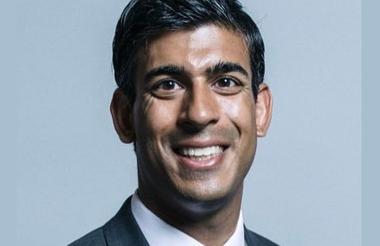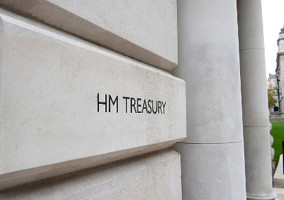In April Rishi Sunak, the chancellor of the exchequer, used the government’s daily coronavirus press briefing to speak directly to charities.
“One of our greatest strengths as a country is our civil society,” Sunak said. He praised “the local charities who provide so much compassion, care and community to the most vulnerable in our country. You have not been forgotten”.
But forgotten is exactly how many people in civil society were feeling.
Charity leaders had first written to the chancellor in early March, warning that thousands of charities faced “real risks to solvency” if the government didn’t step in with financial support to offset the impact of the pandemic.
Charity income had started to disappear overnight. Fundraising opportunities, including annual events like the London Marathon worth millions to the sector, were cancelled. Thousands of charity shops were shuttered as businesses closed to prevent the spread of the virus, leading to millions more in trading losses.
The National Council for Voluntary Organisations (NCVO) crunched the numbers and suggested that charities faced a total funding gap of more than £4bn over the next quarter.
The Children’s Society announced that it was set to lose £1m every month. Children With Cancer UK estimated that a third of its fundraising income was at risk. Martin Houghton-Brown, chief executive of St John Ambulance, told a committee of MPs that without extra funding, his charity – established in 1877 – would run out of money in August.
For weeks, the government had advised charities to access some of the schemes established to help private businesses get through the crisis, but these were often ill-suited to the sector.
For example, the Coronavirus Job Retention Scheme – through which the government covers 80% salary costs for staff furloughed until the crisis is over – can save charities money, but only if they stop staff from doing their jobs and send them home to do nothing.
Andrew Studd, a partner in the charities team at law firm Russell-Cooke, argues that the furlough scheme could even make things worse for charities and their beneficiaries in the long-term. The programme “doesn’t help if a charity needs its staff to continue to deliver vital services”, Studd says, “and if charities are unable to raise funds in the usual way, as a result of lockdown and social distancing requirements, they will eventually run out of money, and services will cease unless further sources of funding can be found”.
The government also recommended that charities apply for the emergency loans rolled out for the private sector, which offer up to £5m to stop businesses going bust. However, organisations are only eligible if they raise most of their income from trading. The overwhelming majority of charities, with their mix of funding streams, do not qualify.
Help from the Treasury
When Sunak finally announced his bespoke financial package for charities, it was worth £750m and was split roughly in two parts.
£360m would go directly as grants from government departments to frontline charities, with priority given to organisations already working closely with the NHS, like hospices and domestic abuse charities. Another £370m in grants was for smaller local charities, with the National Lottery Community Fund distributing much of that money in England.
These funds were only available to charities working inside the UK. A separate £20m fund for global development bodies was announced by the Department for International Development later that week.
The chancellor also issued a warning at the press conference: he did not expect every business or every charity to survive the financial impact of coronavirus.
The message was stark. Some parts of civil society would not make it out the other side of the crisis.
'A sticking platter'
The consensus after the announcement was that £750m, while welcome, was not going to plug the financial hole suddenly opening up for many charities.
“Obviously the devil is in the detail”, says Roberta Fusco, the director of policy and engagement at the Charity Finance Group (CFG). “It is a long way from the £4bn that we had estimated as lost income [for the sector] over the first quarter, and of course we are already a month and more into that first quarter.”
Fusco has reservations, too, about the speed with which the government can get money out the door. “Government departments have pulled away from grant funding over recent years,” she points out, “so those mechanisms may not be there to be turned back on again.
“There is a much bigger job to do. This is a good start, but it is just a first step”.
Debra Allcock Tyler, head of the Directory of Social Change, called the funding package “paltry”. And Javed Khan, the chief executive of Barnardo’s, said the money on offer amounted to “little more than a sticking plaster” given the challenges facing the sector. He joined other charity leaders urging the Treasury to keep the situation “under review”, with the option to provide further funding later.
Storing up trouble
Dan Corry, previously a senior official at the Treasury and now chief executive of the charity think tank New Philanthropy Capital, is not optimistic that the government will come back with that additional financial help.
“I’m afraid I find it hard to believe they will put more in,” he says, although he speculates that if any extra money is given to local councils then some may find its way to local charities. The Treasury simply won’t see it as “the job of government to make sure that every charity survives”, Corry adds.
The government was “very, very slow” to react to charities’ needs, he says, but the eventual priorities for funding were “a no brainer”. By offering the most generous support to charities working closely with the NHS and on the frontline of social care, most money will go to “a few charities where, if they go down, then the cost will all fall on the public sector”. To government officials, letting those charities fail “would be bonkers. The Treasury understood that maths.” However, Corry worries that this will store up substantial problems for the future.
The support package means charities dealing with the immediate crisis get an injection of cash, and it steers money towards some smaller organisations helping people at a local level. But the government “haven’t really done anything on the middle”, he says, meaning charities working on issues like employment and mental health, which will need to help more people than ever when life starts to return to normal.
“If you’re a charity that is in lots of trouble because your fundraising has disappeared and some contracts have disappeared, and you’re trying to struggle through, there doesn’t seem to be much in this package for you. And I think that’s a mistake,” Corry says.
Resilience
The crisis has had “a severe financial impact”, says Stephen King, chief financial officer at The Shaw Trust. King is understandably wary of putting an exact number on the losses facing the charity, but acknowledges that “the impact is in the millions of pounds”.
The Shaw Trust’s income was more than £250m in 2018, according to the latest accounts published with the Charity Commission. It focuses on helping people back into employment, with revenue from a diverse range of sources including large government contracts, traditional fundraising, and some trading.
The charity has already accessed some of the government support on offer by furloughing around 10% of its staff, although King says it has “tried to minimise that as much as possible”. He also anticipates that the programmes quickly established by HMRC in response to the pandemic, such as allowing charities to defer PAYE and VAT payments, should help ease any issues with cash flow.
“We are managing our cash flow carefully at the moment, so there are options which are available,” King says, referring to the other government loans and grants on offer. He does not know yet whether The Shaw Trust will apply for further financial aid “but it is an option”.
In the meantime, he singles out the Department for Work and Pensions, the charity’s main funder, for praise. The DWP has been “very supportive” and responded flexibly to their contracts, he says, and has recognised that The Shaw Trust is getting to grips with remote working and lower staff numbers while trying to maintain its services. “The government has been quite flexible and, given the scale of all this, has provided quite a rapid response.”
In common with Corry, though, he is looking nervously at demand for his charity’s services after the crisis has passed, and at the resilience required of the charities which will have a key role in helping society recover.
“We know this is a period of time we need to get through. The whole landscape is going to change significantly after all this over.”
King adds: “We are of a size where we do have that ability to absorb a shock for a period of time and manage that. But we are very much looking at the future and how to get through this.”
Digging deep
Someone confronting a different challenge is Satbir Singh, the chief executive of the Joint Council for the Welfare of Immigrants (JCWI), a charity which provides support, advice and legal casework on behalf of migrants and their families. JCWI’s turnover was just under £1m in 2019.
“We are not immediately worried about whether we will be able to sustain our work over the course of the next six months or 12 months,” Singh explains, citing a robust set of reserves. His trustee board has been planning how to respond to the coronavirus for months – the board is “risk paranoid”, he says with relief – and some of the reserves are earmarked to cover sudden falls in income and emergency expenditure. His staff are grappling with whole new ways of working together, “all working from home, spread out across the country”, but he does not expect to apply for any funds from the government.
However, he has already been forced to dig into those emergency reserves, and he knows JCWI will not be able to come through the crisis unscathed. He too is looking anxiously at the demand his charity will face after the country emerges from the pandemic.
“What I am worried about is that, over the longer term, there will be a huge spike in the need people have for quality advice and representation,” Singh says. “We won’t be able to respond to that quickly because it is a very expensive thing to put in place. And neither will anybody else.”
Tweaks
If no more money is forthcoming from the government then what can charities do?
Fusco at CFG argues that one focus should be on improving charities’ access to the programmes already up and running. “Our preference would be for structural funding,” she says. “But we need to be pragmatic. Can we amend the schemes which are already out there?”
For example, a relatively small tweak to the Job Retention Scheme could help charities to continue to deliver services. “It makes sense to have charity workers working, delivering the benefit they deliver, rather than have them at home. An amendment to allow charity workers to volunteer for their charity in a different role – to be redeployed, rather than re-employed – would be very helpful.”
Another idea is for the government to change its definition of income generation to include fundraising as well as trading, so that more charities would be eligible for the largest emergency loans.
CFG is also watching the progress of the grant schemes for businesses. The £10,000 small business grants could be made available to organisations registered with charitable status (they are currently excluded). CFG sees some cause for hope in the government’s decision to amend rules so that small private firms are not left “falling through the cracks”. If the government can be flexible for small businesses, Fusco says, then surely it can do the same for charities.
The Charities Aid Foundation, meanwhile, has identified millions of pounds which could be “unlocked” for charities through reforms to the rules around Gift Aid, legacy giving and using cash in dormant bank accounts.
In the end it comes down to whether the government is willing to get money to the charities which need it.
“Without a funding package that reflects the need which we put forward, we are going to see many charities in difficulties,” Fusco says. “The situation might be inevitable.”
Help for charities
Government direct grants
£360m will be available in direct grants from government departments to charities working on the frontline of the coronavirus crisis, including domestic abuse charities and Citizens Advice. £200m of this has been set aside for hospices.
Community grants
£370m will be available to local charities which work with vulnerable people and have an annual income under £1m. The funding will be distributed in England by the National Lottery Community Fund.
International development charities
UK charities working overseas can apply to a separate fund worth £20m, which has been launched by the Department for International Development.
Help for business – but applicable to some charities
Coronavirus job retention scheme
The government will pay 80% of salaries, plus pension and National Insurance contributions, for staff who are furloughed by their employers until the coronavirus crisis is over. Furloughed charity staff cannot volunteer back at the charities which employ them.
Expanded retail discount
Business rates relief of 100% will now be applied to all UK businesses, affecting trading charities and charities working in the leisure and hospitality industries.
Coronavirus business interruption loan scheme
Charities which rely on trading for more than 50% of their income can access up to £5m in government-backed bank loans from the British Business Bank.
Retail, hospitality and leisure grant fund
Charities in these sectors in England which already receive the Expanded Retail Discount will be eligible to receive a grant of up to £25,000, provided they are based in a property with a rateable value of less than £51,000.
Gift aid
Charities can claim Gift Aid against the value of tickets for cancelled events, provided the donor has decided not to ask for a refund and makes it clear that they want it to be treated as a gift.
Statutory sick pay (SSP)
The government has raised SSP to £95.85 per week. Staff self-isolating because of coronavirus can now claim SSP from the first day they are off work.
VAT
Charities registered to pay VAT can defer any payment due between 20 March and 20 June 2020.
Editor’s note:
The online version of this article differs slightly from the print version. After we went to press changes were made to the terms of the CBIL scheme exempting charities from the 50% trading income requirement. That has been reflected in the online version.
Related articles










